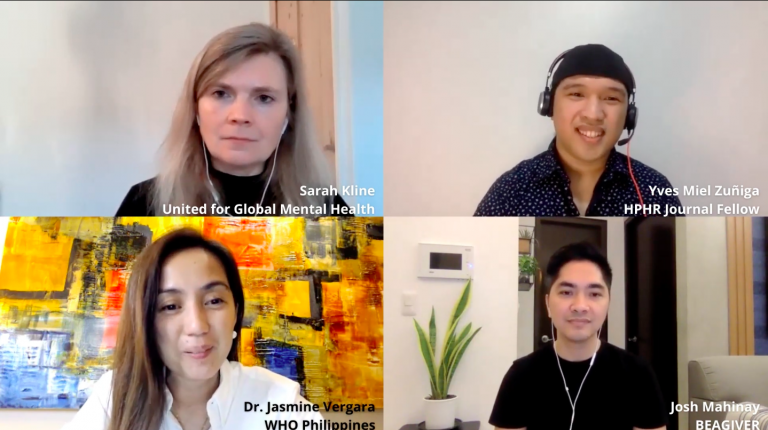
Well-being and the science of kindness
We have the power within each of us, through kindness, to impact our collective community and our collective mental health.
— Cynthia Bissett Germanotta, Born This Way Foundation Tweet
In my previous article, we learned how kindness can take different forms such as respect to human rights, empathy, and self-care. Beyond these values, how can we make kindness benefit our communities, workplaces and even the public mental health system?
With invited panelists from United for Global Mental Health, the World Health Organization Philippines, and BEAGIVER, the second part of this roundtable discussion highlights how kindness can be translated into a collective effort for better mental health and well-being.
"Translating kindness into action means to continue being champions against social injustices."
Josh Mahinay, BEAGIVER Tweet
"The way we influence people is through our actions. It's good to reflect when creating policies, plans, and programs: are we modelling kindness?"
Dr. Jasmine Vergara, WHO Philippines Tweet

"It is important that we work across the society to improve mental health for all."
Sarah Kline, United for Global Mental Health Tweet
Acknowledging the impact of COVID-19 across institutions and sectors, kindness is indeed a value that needs to be integrated within our systems and communities. It can also mean caring for everyone, especially those affected by mental health conditions, by holding people in powerful positions accountable for creating safer and more inclusive spaces for all and for ensuring access to services and care for those in need. To be kind means to be a champion of human rights and of our collective mental health.
Watch the second part of the roundtable discussion below:
Sarah Kline
Dr. Jasmine Vergara
Josh Mahinay
BCPHR.org was designed by ComputerAlly.com.
Visit BCPHR‘s publisher, the Boston Congress of Public Health (BCPH).
Email [email protected] for more information.
Click below to make a tax-deductible donation supporting the educational initiatives of the Boston Congress of Public Health, publisher of BCPHR.![]()
© 2025-2026 Boston Congress of Public Health (BCPHR): An Academic, Peer-Reviewed Journal
All Boston Congress of Public Health (BCPH) branding and content, including logos, program and award names, and materials, are the property of BCPH and trademarked as such. BCPHR articles are published under Open Access license CC BY. All BCPHR branding falls under BCPH.
Use of BCPH content requires explicit, written permission.